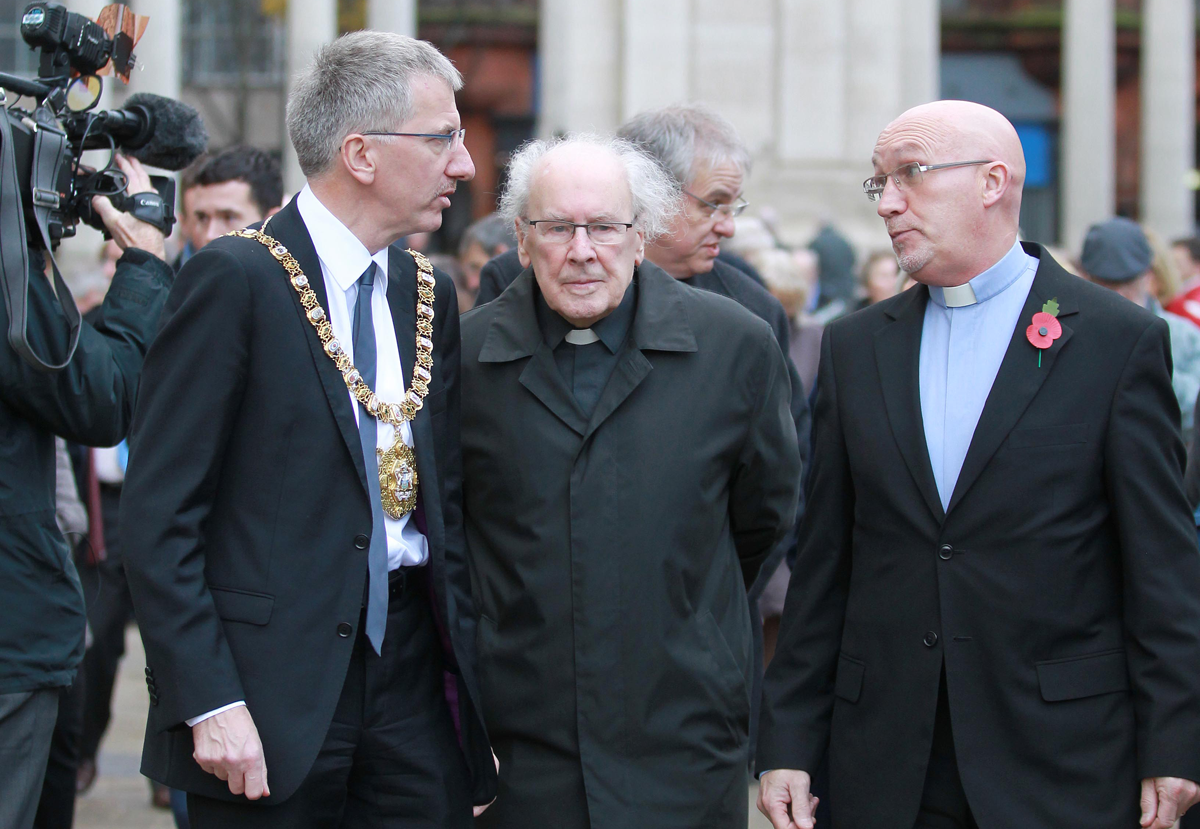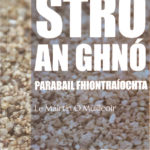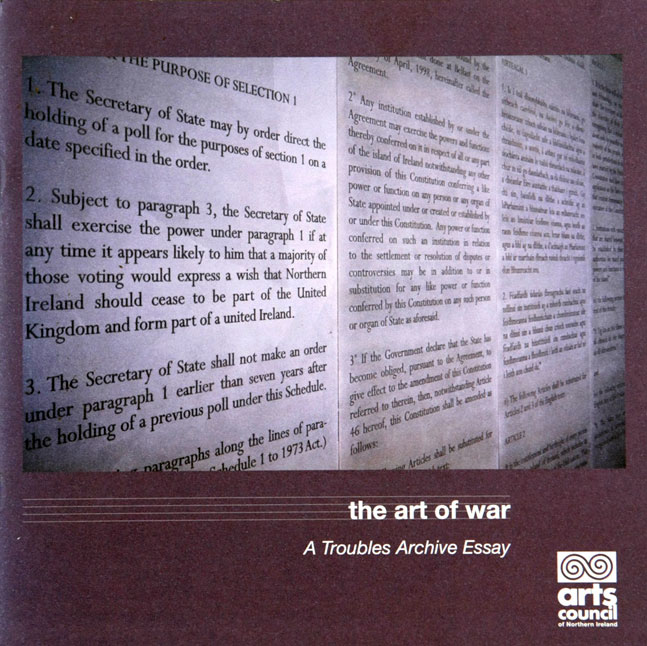
Armistice Day two-minute-silence
This is a piece I wrote after taking part in the Armistice Day two-minute-silence at the Cenotaph in Belfast on 11 November.
When returned to City Hall in 2011, I spoke candidly to the unionist minority across the chamber about my determination to ensure they did not suffer the same relentless discrimination which I had experienced as a Sinn Féin councillor in the eighties and nineties.
For as someone who was thrown out of his first Council meeting by the RUC after 10 minutes, went to work everyday in a flak jacket and was banned from attending committee meetings, I knew what it meant to be a minority under the cosh.
That’s why I pledged to unionists that they could expect fair play and respect for their culture and heritage even as the revamped Belfast City Council set about ensuring equality of respect for Orange AND Green.
But when nominated as mayor by my Sinn Féin comrades in June 2013, I also cautioned that the position of first citizen would bring real challenges to republicans because of the need to build the peace by reaching out to unionists.
But it is my belief that our gestures of outreach, which so frighten some elements within loyalism, are in fact being well-received by the broader unionist community who would rather build for a united city of the future than dwell in the divided city of the past.
For that reason I have refused to be deflected from my conversations with the British Legion to find ways in which the dead of the Great War — that imperialist slaughter which cost Ireland so dearly — can be remembered with respect by all our citizens.
Remembrance often divides our people because many of the ceremonies are replete with British symbolism – flags, anthem, pomp — and so dominated by representatives of the British forces that they become endorsements of, and recruiting sergeants for, more unjust wars.
However, since Alex Maskey first laid a wreath at the City Hall Cenotaph in 2002, republicans have argued for a remembrance ceremony on Armistice Day which would be free of flags and emblems, non-military and inclusive.
The closest ceremony to that description is the two-minute silence at the Cenotaph on the eleventh hour of the eleventh day of November, the day the guns fell silent in 1918. As a gesture therefore to our unionist neighbours who hold this day in solemn reverence, and as a building block towards a more inclusive ceremony which would allow unionists and those Irish nationalists who also died in the terrible horror of World War I to be remembered with dignity, I decided this year to stand as first citizen beside the President of the Royal Legion for the two-minute silence at the Cenotaph.
In 30 years of political and community activism, this is the most difficult decision I have had to make. I did so only after receiving the full support of my colleagues in Sinn Féin and coming to the conclusion that it is the right decision for the peace and reconciliation process in our city now that the war is over. I am grateful to my chaplains, and in particular to my Catholic chaplain Fr Des Wilson, representing eight faiths in our great city for literally standing with me as I showed respect for all the dead of the ‘war to end all wars’.
After the Cenotaph ceremony, I travelled to Milltown Cemetery to make my first visit to the war grave of my great-grandfather John McManus who died in British uniform in 1916. But I also visited the grave of my beloved grandfather Tommy McKeown, an IRA volunteer shot and wounded in May 1922 in an attack which claimed the live of his brother, and the final resting place of my father Sammy who died on Armistice Day 2004. At all three, I offered the same prayer: that we who have inherited the city they built should work together to bind up the wounds of the nation.



